Holocaust survivor's story highlighted at Coventry exhibition
- Published
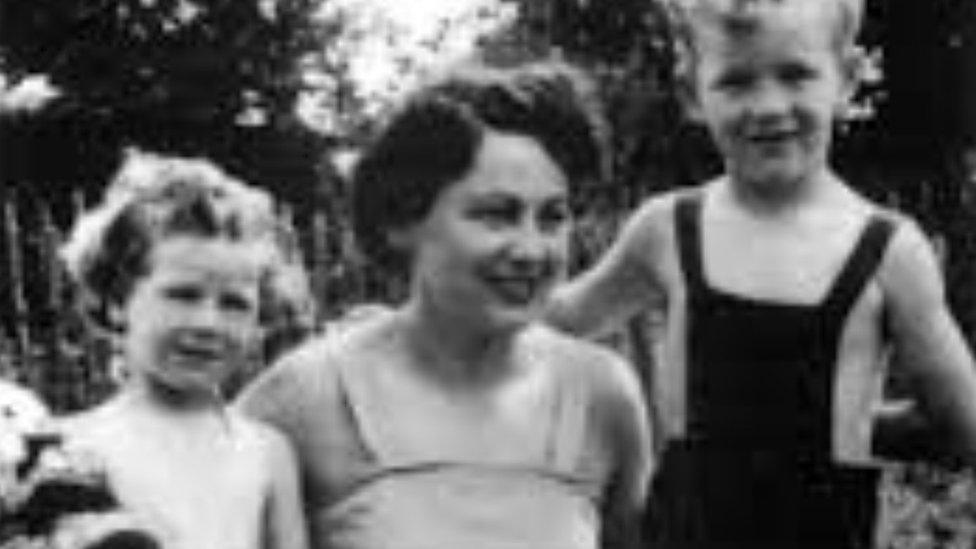
Regina Franks was born in Poland in 1926 and made her home in Coventry after being liberated from Belsen
Regina Franks was just 13 when her father, a Jewish elder, was forced to dig his own grave before being shot in the back of the head by Nazi soldiers. Later, she was sent to Auschwitz, forced on a "death march" in the frozen winter to other camps, and ended up at Belsen. Of the 160 who undertook the journey, she was the only one to survive.
Regina's extraordinary story is one of several in an exhibition about Jewish history and includes her haunting testimony describing the horrors of the Holocaust.
Her mother, sisters, brother, aunts and uncles were all sent to camps from which none of them returned but Regina went on to marry one of the British soldiers who helped liberate her.
In 1946 they moved to Coventry, where they had a son and a daughter, and she trained to become a teacher and social worker.
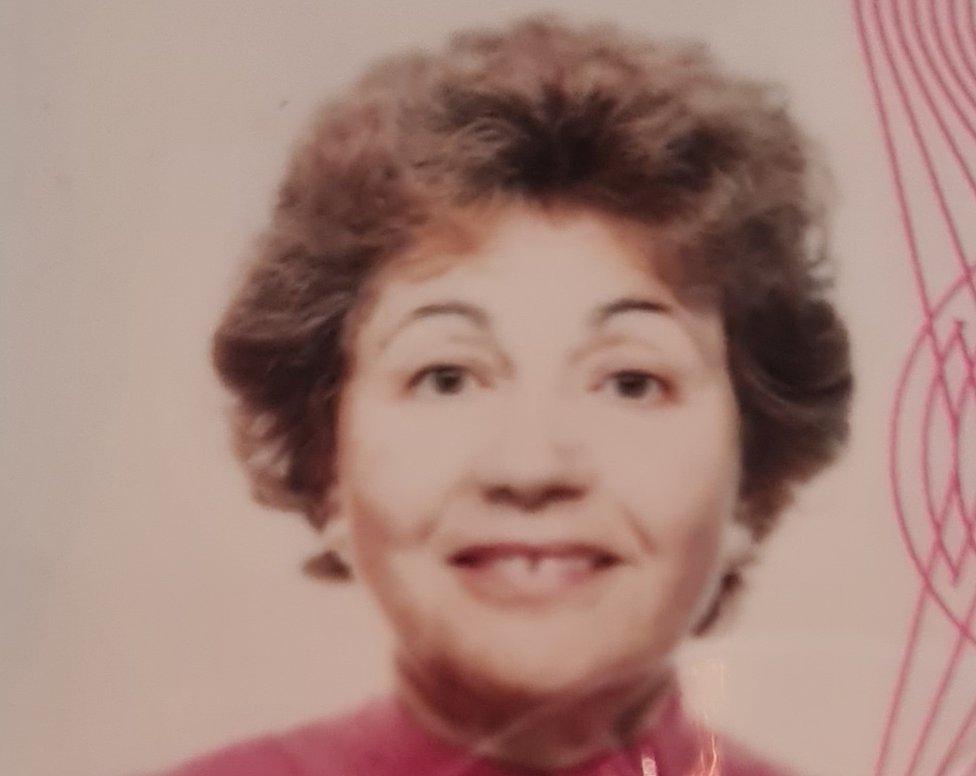
Mrs Franks lived in the city until her death in 1996
The exhibition celebrates Jewish history and the community's "rich contributions to the life of the city", according to organisers, who added it was important to examine Coventry's history of faith and tolerance.
Author and social historian Mark Johnson, from the Coventry Jewish Reform group, said up until her death in 1996, Regina had "carried the horror of her war experiences" and spoken to many people about them.
"She kept her Auschwitz tattoo on her arm for 30 years to ensure that her story was never forgotten," he explained, but she eventually had it surgically removed "as it was becoming a distraction to the people she was caring for".
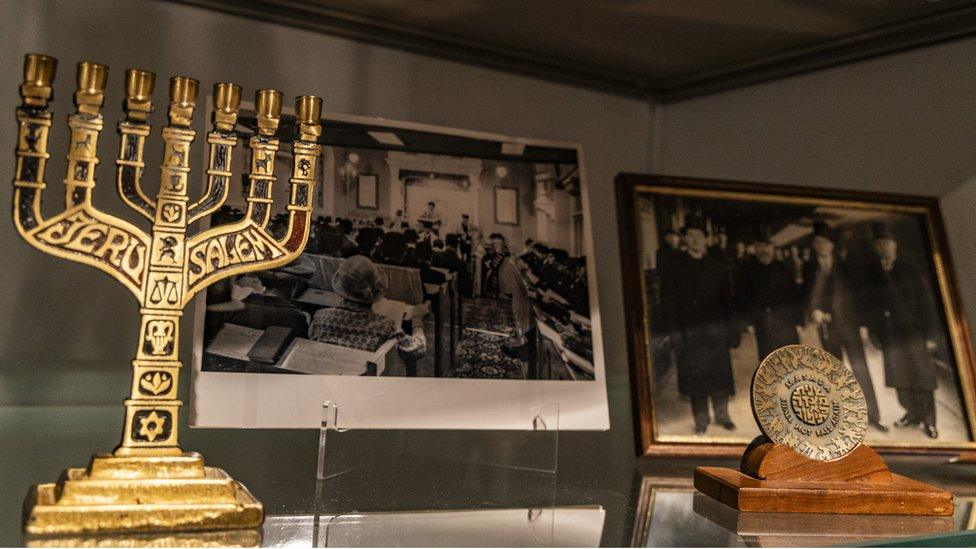
Objects from Jewish life form part of the exhibition
Mr Johnson said the exhibition at the Herbert Art Gallery and Museum reflected Jewish life in the city going back to medieval times.
"It goes back to Elias of Coventry who contributed to the ransom for King Richard the Lionheart, through to more recent times when Joseph Levi, whose clock stands on Gosford Green, founded Coventry''s philanthropic societies, then on to the city's Jewish watchmakers in the19th Century," he added.
A film highlights their contributions to the city's "burgeoning watch industry, where they were creating the highest precision watches in the world, at the time", explained Mr Johnson.
In its heyday the city produced more watches than London and several Jewish immigrant families were prominent in the industry, including that of Alfred Fridlander.
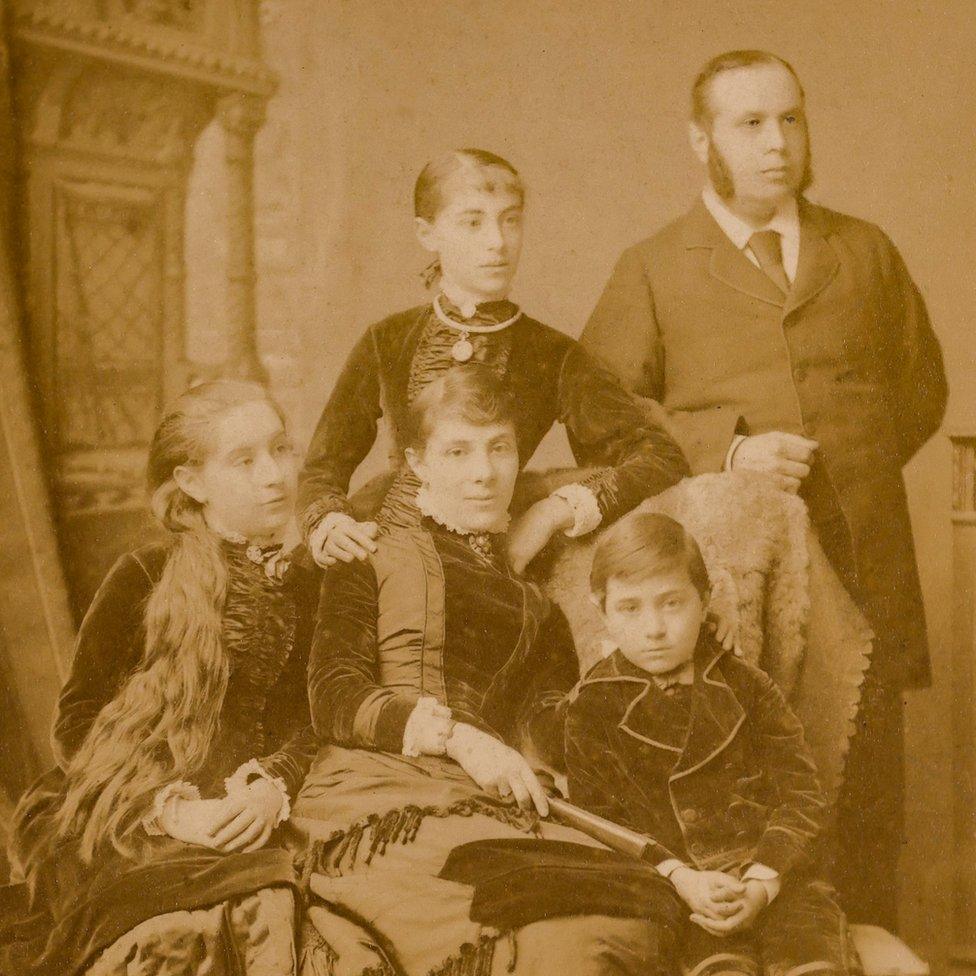
A photograph album dated 1875 contains pictures of the Fridlander family
A founder of Coventry Synagogue in 1870, he served as a city councillor and magistrate, later becoming director of the Triumph Cycle Company.
The very first marriage register from the synagogue is among the exhibits, "where we see the dominance of watchmaking families whose children were being married there", explained Mr Johnson.
As its secretary, Mr Fridlander's signature appears on each of the records.
A family photograph album dated 1875 of his daughter, suffragette Annie Fridlander, contains pictures of "movers and shakers around the city at that time", and is also on display.
It is thought author George Eliot's association with the Fridlander family formed part of the inspiration behind some of her Jewish themed-writings, said Mr Johnson.
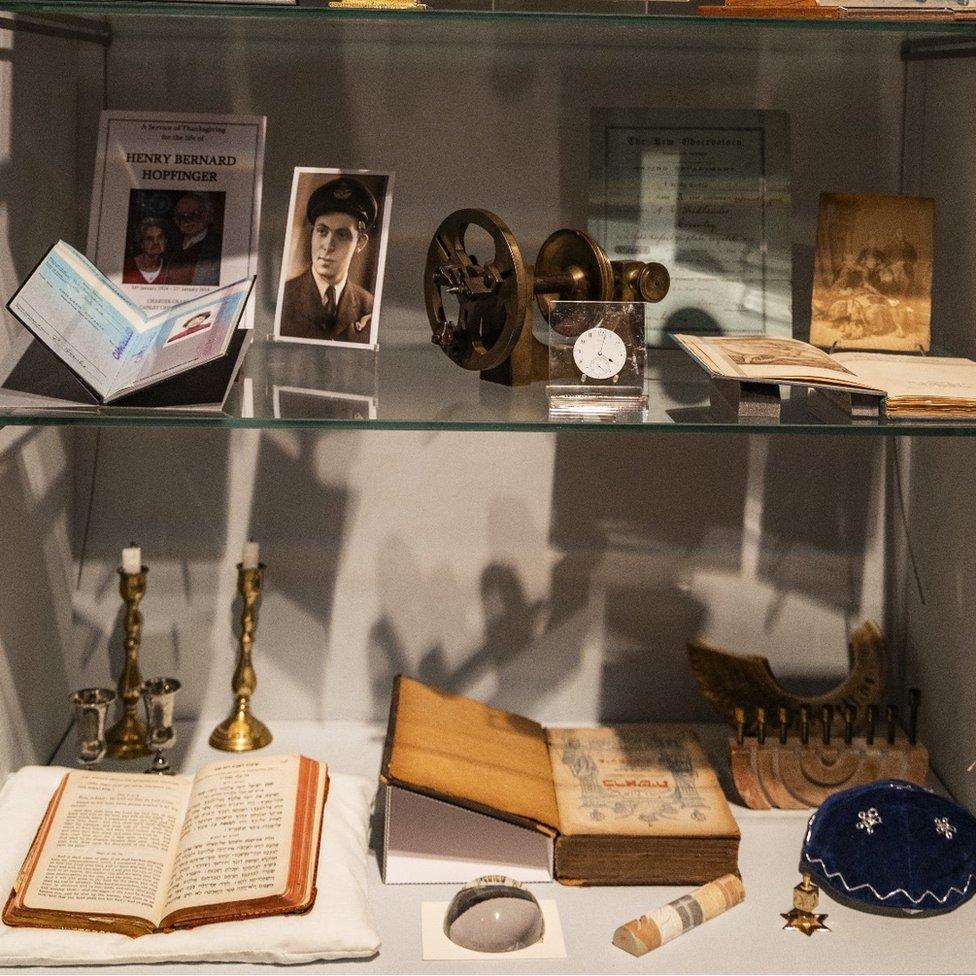
The exhibition is on at Coventry's Herbert Art Gallery and Museum
Another object on display is the 1859 minutes of the Coventry Theatre "of which several of the watchmakers were on the committee, organizing that aspect of the social life of the city at the time", he said.
"They were generally involved in promoting the wellbeing of the city, co-ordinating the then-volunteer fire brigade and giving a silver watch as a prize in a swimming competition at the newly-opened Coventry baths."
Some of these stories had been "overlooked," added Mr Johnson, who carried out the research with film producers Stamp Productions.
"I think even the Jewish community didn't know the richness of its own heritage until we did this research, we each just had little pieces of it. So this is the ideal opportunity to bring these things to light.
"Our continued feeling is that we need to continue to build understanding and tolerance across our communities, and we all have a role to play in it."

Follow BBC West Midlands on Facebook, external, X, external and Instagram, external. Send your story ideas to: newsonline.westmidlands@bbc.co.uk, external